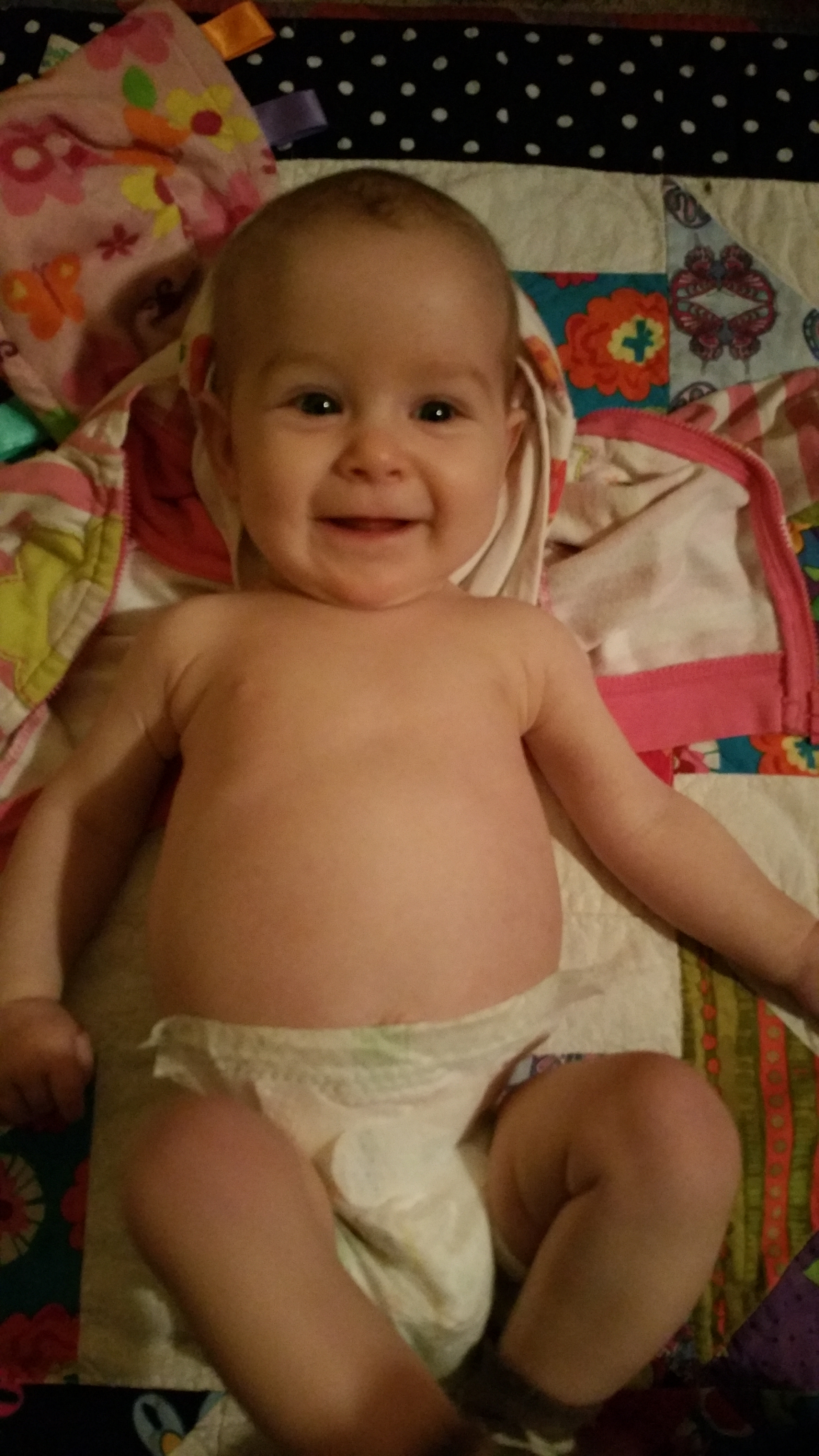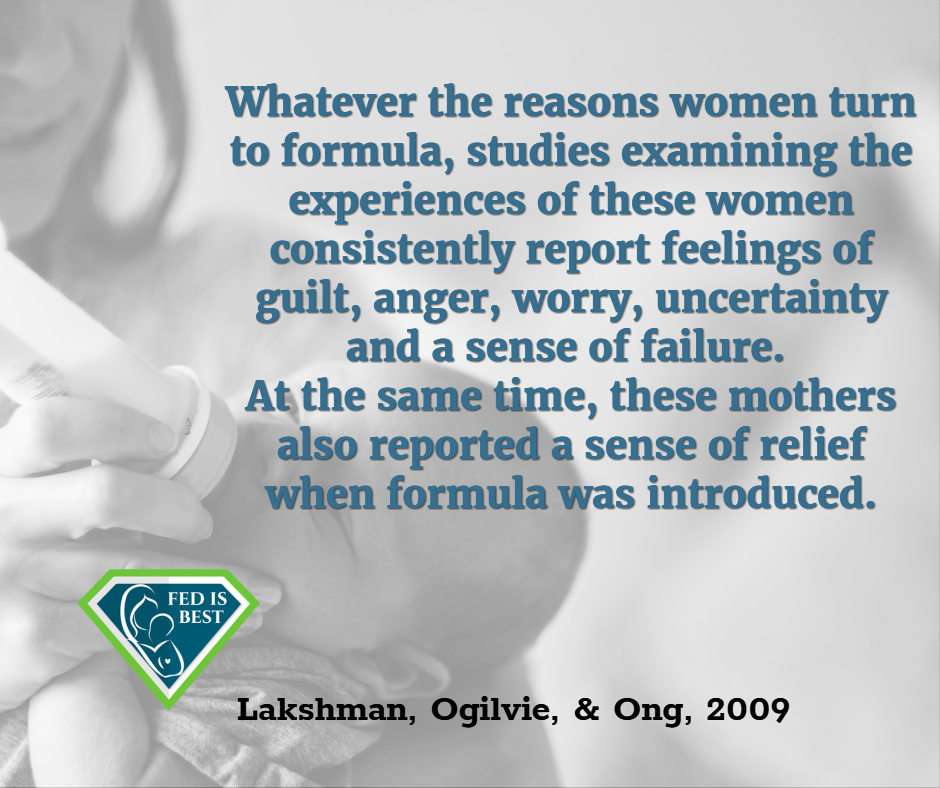I’m the oldest of five kids. My husband has only one sister. Together, we knew that we wanted a large family. Yet, somehow, motherhood still came as a complete shock to me. I stumbled to breastfeed my first child and fed her some formula “on the sly” while I still figured out the damn process. I struggled to breastfeed my second exclusively. Somehow, I did, but I was diagnosed with post-partum depression when she was two months old. We had a space of time after she was born, and I learned whatever I could to breastfeed. I was determined to breastfeed any future children because what good mom would not want to give her the benefits of never getting sick, Einsteinian IQ, smoking hot body, and perfect social standing?
My third was born, and I tried to breastfeed her too. And at her four-month check, her ribs were showing, and our family doctor was worried. Tests that he ordered were not alarming, but did indicate developing problems. He referred me to a pediatric specialist. Dr. K was a godsend. He quickly went through a check, then just said, “ She’s just hungry, Paula.”
He took a little preparatory breath. “I hesitate to say this directly, but can you give her formula?” Honestly, I did feel a small punch to the gut—my mother had breastfed all of us, why couldn’t I?—and the thought of denying my child the supposed benefits seemed so…selfish.
But my daughter’s life lay at stake, and I took every formula sample he offered. She greedily sucked down every bit of that first two ounces I gave her. I prepared another ounce and she ate that too, then finally slept deeply and peacefully. My mother took my older girls so that I could just focus on giving my baby formula between breast-feedings that weekend. My daughter became calmer and her tummy became rounder. Rather quickly, I found that I did not have the sentiment for breast-feeding that I thought I ought to have. The milk I did pump looked thin and watery, and there certainly was not nearly enough to feed a growing infant. I quickly stopped the pumping and feeding and supplementing cycle, and I switched totally over to formula.

Her round little belly after gaining weight with formula.
At my baby’s follow-up the next week, all warning signs of her health were gone and the doctor beamed at a child easily treated, unlike some of his cases. “Some moms can’t produce enough breast milk for a baby,” he explained. “Nothing to be ashamed of, but it just happens. Some moms can’t produce enough for one baby though they can for another. Research on it just isn’t very strong either.” He gave my little girl back to me, tickled her foot, and then surprised me with the words, “I’m just glad that you were not too upset at the suggestion of formula.”
Maybe some would consider it “too late” when I discovered the Fed Is Best Foundation at this time. I had already gone through the trials of breastfeeding and had figured out how to feed my baby without their help, after all. But I don’t consider it a waste. I still had to field the inevitable “What if” questions from others—“What if you had used fenugreek?”, “What if you had pumped between feedings?”, “What if your child had gotten sick without the antibodies?”, “What if you had just tried harder?’—and it was a relief to know that I had a place where I would be safe from such fruitless (and eye-rolling) questioning. I devoured all of the information the Foundation had on hand and resolved to support their work in any way I could.
No mother or child should have to suffer because information on infant feeding is sparse and an agenda focused on a means rather than the end fills the void.
When we were unexpectedly pregnant with twins, I considered maybe pumping some of my watery milk to give them, but by the time I was in hospital, I firmly resolved to give them formula exclusively. I would not start with a crazy cycle again. My boys have never known a day of hunger. I was a more relaxed mother even with five now in my care.

Formula served not only as a life-saver for my babies, but also as a key form of self-care for me. My husband split feedings with me, which allowed me to get some alone time at crucial moments. It fit my personality more readily than the boob. Not being as tired as with breast-feeding babies meant that my emotional health stabilized fairly quickly and my SSRI dosage decreased. Why I could technically breastfeed a child or two but not all of them might be an interesting question for some, but I don’t care to ponder it. Today, they all eat Chick-fil-a fries with equal gusto and turn their noses up each at their veggie of choice. The pumps, powder, bottles, cans, books, stress, and tears are a memory.
Lactivism has certainly established its narrative, but I’m grateful for the Foundation to provide legitimate information without moral judgment for those of us in the trenches.
I still wonder to this day, though, what kind of resistance Dr. K has encountered when he suggests formula to warrant the kind of gratitude he expressed to me. We still have a lot of work to do, and #FedIsBest leads that change.
Thank God for that.
“Paula is a no-nonsense mom of five who blogs about motherhood and keeping calm among chaos at www.bordrum.com/blog”
HOW YOU CAN SUPPORT FED IS BEST
There are many ways you can support the mission of the Fed is Best Foundation. Please consider contributing in the following ways:
- Join the Fed is Best Volunteer group to help us reach Obstetric Health Providers to advocate for counseling of new mothers on the importance of safe infant feeding.
- Make a donation to the Fed is Best Foundation. We are using funds from donations to cover the cost of our website, our social media ads, our printing and mailing costs to reach health providers and hospitals. We do not accept donations from breast- or formula-feeding companies and 100% of your donations go toward these operational costs. All the work of the Foundation is achieved via the pro bono and volunteer work of its supporters.
- Share the stories and the message of the Fed is Best Foundation through word-of-mouth, by posting on your social media page and by sending our resources to expectant moms that you know. Share the Fed is Best campaign letter with everyone you know.
- Write a letter to your health providers and hospitals about the Fed is Best Foundation. Write them about feeding complications your child may have experienced.
- Print out our letter to obstetric providers and mail them to your local obstetricians, midwives, family practitioners who provide obstetric care and hospitals.
- Write your local elected officials about what is happening to newborn babies in hospitals and ask for legal protection of newborn babies from underfeeding and of mother’s rights to honest informed consent on the risks of insufficient feeding of breastfed babies.
- Send us your stories. Share with us your successes, your struggles and every thing in between. Every story saves another child from experiencing the same and teaches another mom how to safely feed her baby. Every voice contributes to change.
- Send us messages of support. We work every single day to make infant feeding safe and supportive of every mother and child. Your messages of support keep us all going. Thank you for your advocacy!

